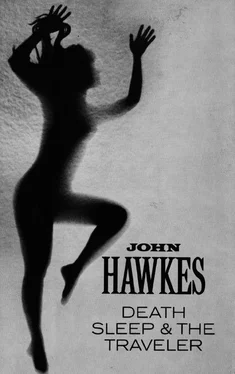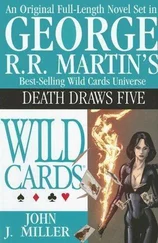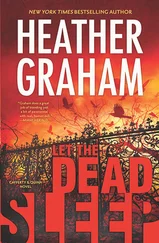At that precise instant in time, when the moment was intact but the hour gone, I heard the reedy sentimental percussive music stop in mid-bar. I opened my eyes. The swimmers were playing porpoise in the ship’s pool, the sky was dear, the bathers were shouting, far below us the engines were roughly and serenely functioning, the ship appeared real, my skin was protected from the rays of the sun by a comforting lotion that smelled powerfully of one of the sweeter spices grown on the little islands we passed in the night. But behind my back there was no music.
I raised myself forward in the deck chair. I heard the crash and clatter of what was unmistakably the sound of someone knocking over a brass cymbal loosely mounted on a long and spindly tripod. This spidery apparatus crashed to the deck. I heard several erratic beats of the bass drum. The male musician cursed — unmistakably it was his voice I heard. And then the sound of a bare hand smacking flatly against a flaming cheek, and since both of the vibraphone player’s hands were swathed in his filthy bandages he, I realized, was not the aggressor. Now one of the women — drummer? saxophonist? — was declaiming some injurious message in a foreign language which to me was incomprehensible. Another crash, an odd partial scale on the vibra-phone, then the woman’s brutish voice also stopped in mid-breath.
At that moment, which was also unmarked in the sea of time, Ariane appeared suddenly beside my chair. As I was straining to lean around to my right and peer in the direction of the ship’s trio now disbanded, silent, Ariane appeared on my left and leaned down, gripped the wooden armrest, and spoke to me softly, urgently, in a tone I had not heard before.
“Allert,” she said, “the ship’s orchestra is quarreling. It’s dreadful. Dreadful.”
Later, as the path of the ship was crossing the path of a black buoy that had been cut adrift from some unknown anchorage, and after Ariane and I had risen from the deck chair and, holding hands, were preparing to go below to her cabin or mine, it was then that I noticed the abandoned vibraphone, the silent drum, the saxophone like a golden bird strangled on the hook from which it hung, and in a heap on the deck the cymbal and its thin but ungainly stand.
“Allert,” she said, “don’t you think it is a sign? I could not bear a voyage that was not harmonious.”
I reassured Ariane that the vibraphone player and his two ugly women were no doubt already kissing in their dark quarters below the water line. It occurred to me that Ariane had ambitions of joining the ship’s trio when on the fantail they began to play their last long number as our white ship rounded the breakwater and once more entered home port — gaily, with whistles steaming and the sun in the eyes of all those jubilant travelers crowding the rail. But we returned in the night.

“But of course,” Peter was saying, “of course the schizophrenic has his romantic nature like anyone else. No, my friend, which one of us would dare deny the schizophrenic his possibilities for romantic behavior?”
His long dark fingers were plucking the congealed feathers from the duck that was both dead and blue. I was well aware that inside his knee-high rubber boots the argyle socks were freshly bought and warm, soft, closely knitted in two colors — red and green. I knew about the nature of Peter’s socks because they were mine. Above our heads the ice was suspended from the eaves like transparent teeth. The last sun was flowing across the snow.
“You should not be so hostile to Acres Wild,” he continued. “At Acres Wild we have numerous long-lived affairs. It is part of the cure, my friend. Part of the cure.”
That day his pipe smoke smelled like the dark forest which, only minutes or hours before, the dead duck in his hand had skimmed in swift flight. That day Peter’s smile belonged on the leather face of a conquistador. The fat of the cold duck fell like red speckled droplets of candle wax into the pure snow.

To me it has always been curious that Peter, who never married, should have lived a life that was unconditionally monogamous, thanks to the power of Ursula’s dark allure and her strength of mind, whereas I, who became married to Ursula one Sunday afternoon in a small stone country chapel that had hosted a funeral the same morning, have lived my life as sexually free as the arctic wind. To me it is curious that two friendly duck hunters should have been so different, and that Ursula should have thought of Peter as lover and of me as husband. I have often thought our situations should have been reversed.

Yesterday while stamping the snow with my rubber boots and burning a pile of scrub brush that I had dragged from the wall of forest that lies dark and distant behind our house, and feeling the cold air thick and crystallizing in my lungs and a new beard fringing my chapped face, yesterday I realized that between the hour of my acquittal — an event I rarely allow to consciousness — and the very moment I was pausing to wipe the soot from my jaw, there lay eight or perhaps nine long years of companionship, solitude, winter life. And during all this time I have thought of myself as moderate, slow-paced, sensible, overly large, aging. But ordinary, always ordinary, merely the owner of a small but elegant estate (with a handsome wife, with a good friend, with girl friends, with several automobiles). And yet throughout these years, I told myself yesterday while tasting the charred smoke of the fire and watching the sparks dashing upward into a dead sky, Ursula must have thought of me as a Dutch husband who had been lobotomized — but imperfectly. The medical aspect of the metaphor was one she would have learned from Peter.
At that moment the intangible again gave birth to the tangible. And leaving the fire, which was now sending skyward a long plume of smudge as though some small aircraft had just crashed at the edge of my forest, I indeed felt lobotomized. My head was like a boulder encased with ice. My steps were slow. I knew that if I could have taken a hammer and cracked open my icy rock, my frozen head, I would have found inside the perfect memory: that it now has been three years since Peter’s death.
In the kitchen I found set out in the center of a stone dish my usual little clear glass of schnapps, which I seized and drank down even before removing my pullover or washing the signs of the burning fire from my numbed and naked hands.
“Ursula,” I called, “arc you here?”
There was no answer.

“I do not mean to hurt your feelings,” Peter was saying, “but tell me, Allert, are you wearing a wig? This evening you look exactly as if you are wearing a wig.”
He swished the ice in his glass. He stretched his lean leg toward the smoldering fire. He laughed, Ursula laughed, I also laughed, because only moments before Peter uttered his unfortunate remark I had been guilty of wondering precisely the same thing about my well-groomed friend. A trick of the light? An offshoot from our undeniable proclivities toward a night of love? Perhaps, perhaps, since Peter’s hair gleamed thickly in the low light of the fire, while from where I sat on the other side of Ursula I could smell the scent he had applied lavishly, secretly, as part of his bathing ritual upstairs. But Peter’s remark was most unfortunate.
My hair has always been my own.

Читать дальше













